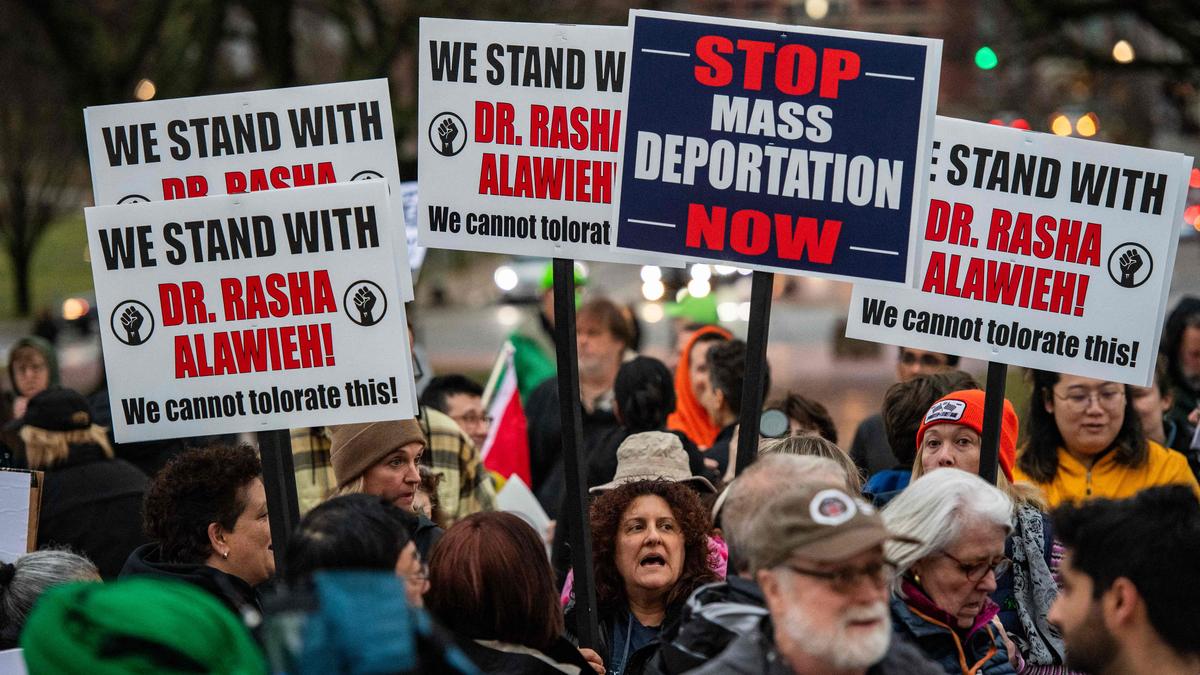
Whittling down sources of U.S. soft power
The Hindu
Trump's foreign policy directives are reshaping U.S. soft power, impacting alliances, USAID, trade, immigration, and education globally.
Since assuming office for the second time in January 2025, U.S. President Donald Trump’s directives, especially on foreign policy, have been projected as power moves as part of the plan to put “America First” and to “Make America Great Again”. However, these actions are also cutting at the roots of U.S.’s influence in the world that make up its ‘soft power’.
Soft power is defined as “the use of positive attraction and persuasion to achieve foreign policy objectives” — an economic, cultural and values-based measure as opposed to the military or coercive nature of ‘hard power’.
A look at five major sources of the U.S’s influence on the world or its ‘soft power’, and how they are impacted by the Trump administration’s recent moves:
Alliances: Since the Second World War, the formation of the “Five Eyes Alliance” for intelligence sharing in 1946, and the formation of the North Atlantic Treaty Organization (NATO) in 1949, the U.S.’s hard power but also its soft power has multiplied. Yet, a number of Mr. Trump’s statements appear to be weakening the U.S.’s image amongst its allies. From his territorial claims on Greenland, a semi-autonomous region that is part of Denmark, or his case for annexing Canada, to his unilateral actions in the Russia-Ukraine war — all have been at odds with the policies of the U.S.’s European allies, where U.S. soft power is the highest.
Additionally, Mr. Trump has criticised the U.S.’s alliance treaty with Japan as “unequal”, and his praise for North Korean leader Kim Jong Un, with whom he shares a “great relationship”, has led to misgivings in Tokyo and Seoul. Adverse comments by a Trump nominee on the AUKUS agreement (a trilateral security pact between Australia, the U.K. and the U.S.) have also raised questions in Australia. While all of these are just statements at present and not hard action, they are still straining ties between the U.S. and its closest friends, while empowering those U.S. had declared its “strategic rivals” . These moves bring into question just how committed the U.S. will be to groupings which aren’t even alliances, like the Quad, which India will host this year. Meanwhile, the Trump administration’s full-fledged backing to the Israeli bombardment of Gaza, as well as plans to redevelop it, is causing the U.S. to lose support in countries of the Global South.
USAID: The attack by the Trump-appointed Department of Government Efficiency (DOGE), led by Tesla and SpaceX CEO Elon Musk, on America’s assistance programme — the United States Agency for International Development or USAID — has axed another source of U.S. influence in the world. In a matter of weeks, decade-old programmes of the USAID have been slashed down, with only about 17% of programmes being spared. With $35 billion in appropriations, of which about a third was allocated to sub-Saharan Africa, USAID distributed more than $24 billion to humanitarian, health, agriculture and education programmes, with the rest being used for governance and administration. While many dependent on USAID funds have decried the loss, others, including in countries like India, have hailed the curtailment of USAID programmes, as they were seen as political instruments to further U.S. interests.
Both would be in agreement, however, that USAID furthered American influence, and the Trump administration’s actions against it won’t just reduce that influence — it also means that all such U.S. programmes in the future would be eyed with suspicion in recipient countries.





















 Run 3 Space | Play Space Running Game
Run 3 Space | Play Space Running Game Traffic Jam 3D | Online Racing Game
Traffic Jam 3D | Online Racing Game Duck Hunt | Play Old Classic Game
Duck Hunt | Play Old Classic Game











